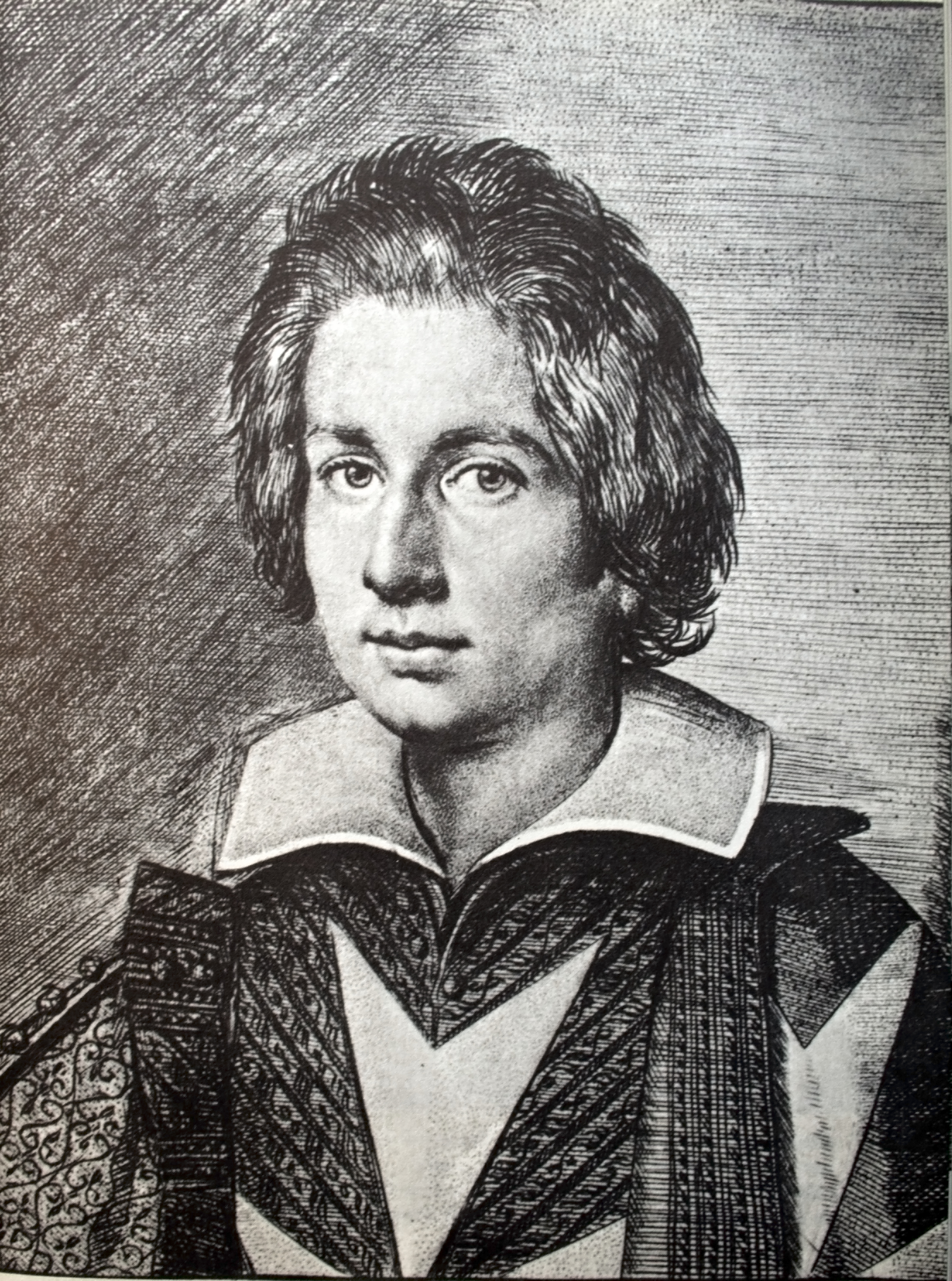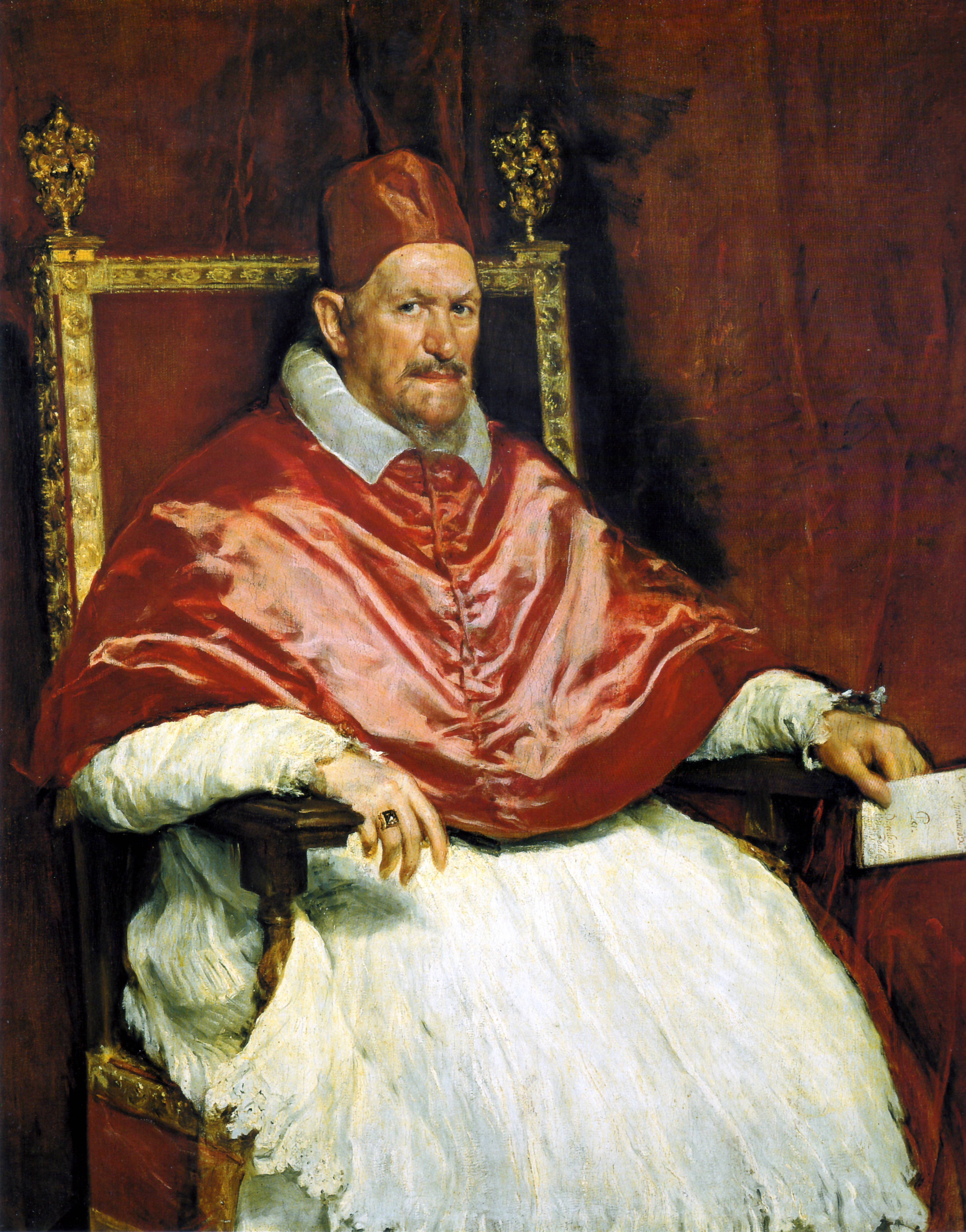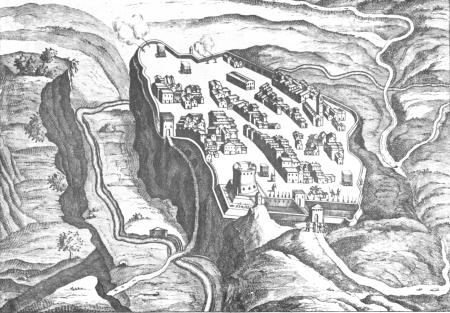|
Lorenzo Imperiali
Lorenzo Imperiali (21 February 1612 - 21 September 1673) was an Italian Catholic cardinal. Early life Imperiali was born in Genoa on 21 February 1612 to the patrician Imperiali family of that city. He went to Rome during the pontificate of Pope Urban VIII and was appointed vice-legate in Bologna and governor of Fano and Ascoli Piceno. During the absence of Cardinal Antonio Barberini he was appointed legate in Ferrara. He was later appointed cleric of the Apostolic Chamber. During the Wars of Castro, Imperiali was appointed governor of those provinces of the State of Castro under the control of the papacy and was appointed commissary-general of the papal army. He was later sent by Pope Innocent X to Fermo to put down the uprising that had cost the life of its governor in 1648. Pope Innocent appointed Imperiali governor of Rome between 1653 and 1654. Ecclesiastic career Before appointing Imperiali governor, the pope elevated him to cardinal but the elevation was reserve ... [...More Info...] [...Related Items...] OR: [Wikipedia] [Google] [Baidu] |
Catholic Church
The Catholic Church, also known as the Roman Catholic Church, is the largest Christian church, with 1.3 billion baptized Catholics worldwide . It is among the world's oldest and largest international institutions, and has played a prominent role in the history and development of Western civilization.O'Collins, p. v (preface). The church consists of 24 ''sui iuris'' churches, including the Latin Church and 23 Eastern Catholic Churches, which comprise almost 3,500 dioceses and eparchies located around the world. The pope, who is the bishop of Rome, is the chief pastor of the church. The bishopric of Rome, known as the Holy See, is the central governing authority of the church. The administrative body of the Holy See, the Roman Curia, has its principal offices in Vatican City, a small enclave of the Italian city of Rome, of which the pope is head of state. The core beliefs of Catholicism are found in the Nicene Creed. The Catholic Church teaches that it is the on ... [...More Info...] [...Related Items...] OR: [Wikipedia] [Google] [Baidu] |
Antonio Barberini
Antonio Barberini (5 August 1607 – 3 August 1671) was an Italian people, Italian Roman Catholic Church, Catholic Cardinal (Catholicism), cardinal, Roman Catholic Archdiocese of Reims, Archbishop of Reims, military leader, patron of the arts and a prominent member of the Barberini, House of Barberini. As one of the cardinal-nephews of Pope Urban VIII and a supporter of Kingdom of France, France, he played a significant role at a number of the papal conclaves of the 17th century. With his brothers Cardinal Francesco Barberini (seniore), Francesco Barberini and Taddeo Barberini he helped to shape politics, religion, art and music of 17th century Italy. He is sometimes referred to as ''Antonio the Younger'' or ''Antonio Barberini iuniore'' to distinguish him from his uncle Antonio Marcello Barberini. Early life Barberini was born on 5 August 1607 in Rome, the youngest of 6 children to Carlo Barberini (1562-1630), Carlo Barberini and Costanza Magalotti (sister of Lorenzo Magalotti ... [...More Info...] [...Related Items...] OR: [Wikipedia] [Google] [Baidu] |
In Pectore
''In pectore'' (Latin for "in the breast/heart") is a term used in the Catholic Church for an action, decision, or document which is meant to be kept secret. It is most often used when there is a papal appointment to the College of Cardinals without a public announcement of the name of that cardinal. The pope reserves that name to himself. The Italian language version of the phrase – ''in petto'' – is sometimes used. When the name of a new cardinal is announced or made public, it is sometimes said to be ''published''. Since the practice arose in the sixteenth century its use has varied greatly. Some popes have used it rarely or not at all, while others have used it regularly. In the first half of the 19th century, Pope Gregory XVI appointed half of his 75 cardinals ''in pectore'' and left several unidentified at his death. Background Since the fifteenth century, popes have made such appointments to manage complex relations among factions within the Church, when pub ... [...More Info...] [...Related Items...] OR: [Wikipedia] [Google] [Baidu] |
Uprising
Rebellion, uprising, or insurrection is a refusal of obedience or order. It refers to the open resistance against the orders of an established authority. A rebellion originates from a sentiment of indignation and disapproval of a situation and then manifests itself by the refusal to submit or to obey the authority responsible for this situation. Rebellion can be individual or collective, peaceful (civil disobedience, civil resistance, and nonviolent resistance) or violent (terrorism, sabotage and guerrilla warfare). In political terms, rebellion and revolt are often distinguished by their different aims. While rebellion generally seeks to evade and/or gain concessions from an oppressive power, a revolt seeks to overthrow and destroy that power, as well as its accompanying laws. The goal of rebellion is resistance while a revolt seeks a revolution. As power shifts relative to the external adversary, or power shifts within a mixed coalition, or positions harden or soften on eithe ... [...More Info...] [...Related Items...] OR: [Wikipedia] [Google] [Baidu] |
Fermo
Fermo (ancient: Firmum Picenum) is a town and ''comune'' of the Marche, Italy, in the Province of Fermo. Fermo is on a hill, the Sabulo, elevation , on a branch from Porto San Giorgio on the Adriatic coast railway. History The oldest human remains from the area are funerary remains from the 9th–8th centuries BC, belonging to the Villanovan culture or the proto-Etruscan civilization. The ancient Firmum Picenum was founded as a Latin colony, consisting of 6000 men, in 264 BC, after the conquest of the Picentes, as the local headquarters of the Roman power, to which it remained faithful. It was originally governed by five quaestors. It was made a colony with full rights after the battle of Philippi, the 4th Legion being settled there. It lay at the junction of roads to Pausulae, Urbs Salvia, and Asculum, connected to the coast road by a short branch road from Castellum Firmanum (Porto S. Giorgio). According to Plutarch's ''Parallel Lives'', Cato the Elder thought highly ... [...More Info...] [...Related Items...] OR: [Wikipedia] [Google] [Baidu] |
Pope Innocent X
Pope Innocent X ( la, Innocentius X; it, Innocenzo X; 6 May 1574 – 7 January 1655), born Giovanni Battista Pamphilj (or Pamphili), was head of the Catholic Church and ruler of the Papal States from 15 September 1644 to his death in January 1655. Born in Rome of a family from Gubbio in Umbria who had come to Rome during the pontificate of Pope Innocent IX, Pamphili was trained as a lawyer and graduated from the Collegio Romano. He followed a conventional ''cursus honorum'', following his uncle Girolamo Pamphili as auditor of the Rota, and like him, attaining the position of cardinal-priest of Sant'Eusebio. Before becoming pope, Pamphili served as a papal diplomat to Naples, France, and Spain. Pamphili succeeded Pope Urban VIII (1623–44) on 15 September 1644 as Pope Innocent X, after a contentious papal conclave that featured a rivalry between French and Spanish factions. Innocent X was one of the most politically shrewd pontiffs of the era, greatly increasing the tempor ... [...More Info...] [...Related Items...] OR: [Wikipedia] [Google] [Baidu] |
Army
An army (from Old French ''armee'', itself derived from the Latin verb ''armāre'', meaning "to arm", and related to the Latin noun ''arma'', meaning "arms" or "weapons"), ground force or land force is a fighting force that fights primarily on land. In the broadest sense, it is the land-based military branch, service branch or armed service of a nation or country. It may also include aviation assets by possessing an army aviation component. Within a national military force, the word army may also mean a field army. In some countries, such as France and China, the term "army", especially in its plural form "armies", has the broader meaning of armed forces as a whole, while retaining the colloquial sense of land forces. To differentiate the colloquial army from the formal concept of military force, the term is qualified, for example in France the land force is called ''Armée de terre'', meaning Land Army, and the air and space force is called ''Armée de l'Air et de l’Esp ... [...More Info...] [...Related Items...] OR: [Wikipedia] [Google] [Baidu] |
Papal
The pope ( la, papa, from el, πάππας, translit=pappas, 'father'), also known as supreme pontiff ( or ), Roman pontiff () or sovereign pontiff, is the bishop of Rome (or historically the patriarch of Rome), head of the worldwide Catholic Church, and has also served as the head of state or sovereign of the Papal States and later the Vatican City State since the eighth century. From a Catholic viewpoint, the primacy of the bishop of Rome is largely derived from his role as the apostolic successor to Saint Peter, to whom primacy was conferred by Jesus, who gave Peter the Keys of Heaven and the powers of "binding and loosing", naming him as the "rock" upon which the Church would be built. The current pope is Francis, who was elected on 13 March 2013. While his office is called the papacy, the jurisdiction of the episcopal see is called the Holy See. It is the Holy See that is the sovereign entity by international law headquartered in the distinctively independent Vatican ... [...More Info...] [...Related Items...] OR: [Wikipedia] [Google] [Baidu] |
Commissary
A commissary is a government official charged with oversight or an ecclesiastical official who exercises in special circumstances the jurisdiction of a bishop. In many countries, the term is used as an administrative or police title. It often corresponds to the command of a police station, which is then known as a " commissariat". In some armed forces, commissaries are officials charged with overseeing the purchase and delivery of supplies, and they have powers of administrative and financial oversight. Then, the " commissariat" is the organization associated with the corps of commissaries. By extension, the term "commissary" came to be used for the building where supplies were disbursed. In some countries, both roles are used; for example, France uses " police commissaries" (''commissaires de police'') in the French National Police and "armed forces commissaries" (''commissaires des armées'') in the French armed forces. The equivalent terms are ''commissaire'' in French, ''c ... [...More Info...] [...Related Items...] OR: [Wikipedia] [Google] [Baidu] |
Papacy
The pope ( la, papa, from el, πάππας, translit=pappas, 'father'), also known as supreme pontiff ( or ), Roman pontiff () or sovereign pontiff, is the bishop of Rome (or historically the patriarch of Rome), head of the worldwide Catholic Church, and has also served as the head of state or sovereign of the Papal States and later the Vatican City State since the eighth century. From a Catholic viewpoint, the primacy of the bishop of Rome is largely derived from his role as the apostolic successor to Saint Peter, to whom primacy was conferred by Jesus, who gave Peter the Keys of Heaven and the powers of "binding and loosing", naming him as the "rock" upon which the Church would be built. The current pope is Francis, who was elected on 13 March 2013. While his office is called the papacy, the jurisdiction of the episcopal see is called the Holy See. It is the Holy See that is the sovereign entity by international law headquartered in the distinctively independent Vatican ... [...More Info...] [...Related Items...] OR: [Wikipedia] [Google] [Baidu] |
Castro, Lazio
Castro was an ancient city on the west side of Lake Bolsena in the present-day ''comune'' of Ischia di Castro, northern Lazio, Italy. It was destroyed at the conclusion of the Wars of Castro in the 17th century. Early history The settlement of Castro was founded in prehistoric times, and was later the seat of an unspecified Etruscan city, probably Statonia. In the Middle Ages it had a castle (Latin: ''castrum''), hence the name. Although an autonomous commune, it remained nonetheless under papal suzerainty. In 1527 a pro-independence faction assumed power, but they were later ousted by Pier Luigi Farnese, whose family was to rule Castro until the 17th century. In the same year another Farnese, Gian Galeazzo, sacked it in the wake of the Sack of Rome. Ten years later, in 1537, three years after the election of Alessandro Farnese as Pope Paul III, it became the seat of an independent duchy under his son Pier Luigi Farnese. The town, which in the meantime had been reduced to ... [...More Info...] [...Related Items...] OR: [Wikipedia] [Google] [Baidu] |
Wars Of Castro
The Wars of Castro were a series of conflicts during the mid-17th century revolving around the ancient city of Castro (located in present-day Lazio, Italy), which eventually resulted in the city's destruction on 2 September 1649. The conflict was a result of a power struggle between the papacy – represented by members of two deeply entrenched Roman families and their popes, the Barberini and Pope Urban VIII and the Pamphili and Pope Innocent X – and the Farnese dukes of Parma, who controlled Castro and its surrounding territories as the Duchy of Castro. Precursors Papal politics of the mid-17th century were complicated, with frequently shifting military and political alliances across the Catholic world. While it is difficult to trace the precise origins of the feud between the duchy of Parma and the papacy, its origins can be looked for in political maneuverings occurring in the years or even decades preceding the start of military action. In 1611 a group of conspirator ... [...More Info...] [...Related Items...] OR: [Wikipedia] [Google] [Baidu] |
.jpg)


.jpg)





